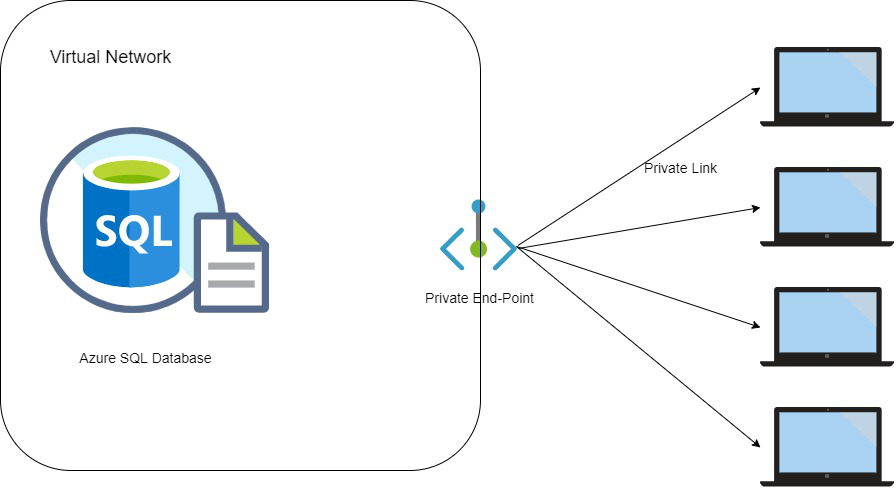Microsoft Azure – Introduction to Azure SQL Database
Last Updated :
31 Mar, 2023
Azure SQL Database is a database built for modern Cloud applications. Developers and clients opt for Azure SQL for one or more of the below-mentioned reasons:
- If they want to build multi-tenanted software as a service type of application, elastic pools are a great option for the same.
- If they have a database and they don’t want to have to choose between over-provisioning and overpaying or under-provisioning and suffering performance tests.
- There might also be users who want to scale independently their compute and their storage.
- If they just want to start integrating other Azure services with their applications.
All of these challenges or opportunities might lead someone towards Azure SQL Database.
Key Functionalities of Azure Database:
Azure SQL Database has some really key functionality. A few of them are listed below:
- Since Azure is going to manage the SQL Server behind the scene and the user is going to focus on the database, Azure SQL Database has some more flexibility.
- Azure can provide an elastic pool where you share a bunch of databases and pay for databases and manage them as an entire pool of databases. Really helpful for hoster scenarios.
- Azure is also going to give you options like HyperScale where you’re going to get the maximum sizes of databases that you need for maximum performance with really large-scale applications.
- Things like serverless, where Azure can even pause an idle SQL Server and you only pay for the time of using SQL Server when you need it.
- Azure can also auto-scale your application as per demand.
- Azure SQL Database gives you the maximum managed service capabilities.
- Azure SQL Database also provides features like automatic tuning.
Security in Azure SQL Database:
Azure also makes sure that you’re secure. So Azure SQL managed instance gives you a virtual network by default. Azure is going to provide you secure network connectivity called Private Link.

Availability and Pricing in Azure SQL Database:
You’re going to get the maximum availability in Azure SQL Database as Azure is going to be able to take your Azure SQL Database and use things like availability zones for that maximum availability. In fact, Azure is the only data platform industry out there, that gives you SLAs, literally for your RPO and RTO needs availability of your database. Recently there was a study done by GigaOM comparing Azure SQL Database to the competition from a price-performance perspective and an Azure Database did really, really well when you compare it to things going on in the competitive market.
Azure Database is really great for modern applications, it gives you the maximum pass capabilities, different deployment options, and great availability and performance capabilities for the needs of your application.
Integration with other Azure Services:
You can start hooking, the Azure SQL Database into other Azure services like Azure Machine Learning Services to start building new intelligent applications that can make predictions for your sales and customers. You can quickly get started and build new intelligent applications, leveraging the power of Azure.

Integration with Azure SQL Database
Capabilities of Azure SQL Database:
The below table list the key differentiators of the Azure SQL Database:
- Single database or elastic pool
- Hyperscale storage(100TB+)
- Serverless compute
- Fully managed service
- Private link support
- High availability with AZ isolation
- Availability SLA of 99.95%
- Business continuity SLA with 5 second RPO and 30 second RTO
- Cost 86% less than AWS RDS.
Like Article
Suggest improvement
Share your thoughts in the comments
Please Login to comment...